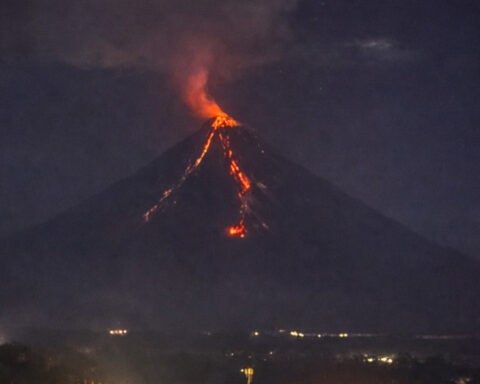Global ocean temperatures have been steadily increasing since the 1980s, reaching record highs in recent years.
2023 is particularly notable as ocean temperatures continue to rise, with the average global ocean temperature now at its highest recorded level.
These rising temperatures have significant implications for climate and weather, leading to increased energy in weather systems, resulting in more evaporation, heavy rainfall, and extreme heat events.
Experts suggest that humans will eventually feel the effects of this increased energy in the form of more frequent and intense weather events.
Extreme weather events
One notable aspect of this year’s ocean temperatures is the widespread nature of the heat.
For example, during July, sea surface temperatures in the Mediterranean Sea were as much as 3 degrees Celsius higher than normal, with some areas along the coasts of Italy, Greece, and North Africa experiencing temperatures up to 5.5 degrees Celsius above average.
These warm ocean temperatures likely contributed to extreme weather events, such as heatwaves and wildfires in Greece, intense heat in Central America, and record-breaking rainfall triggered by Typhoon Doksuri in China.
In the Asia Pacific region, the impact of extreme weather and climate change is intensifying, leading to a pattern of alternating droughts and floods, causing immense harm to lives and livelihoods.
The World Meteorological Organization’s recent report underscores the growing threat of socio-economic disruptions due to the combined effects of melting ice, glaciers, and rising sea levels.
Specific instances include severe flooding in Pakistan, melting glaciers in the High Mountain Asia region, and a widespread warming trend in oceanic areas. Furthermore, the aftermath of Typhoon Nanmadol in September was marked by record-breaking winds and heavy rainfall recorded at multiple stations in Japan.
The Philippines already experiences so many typhoons a year which could result in wider damage to the community and the economy.
Furthermore, two towns in Camarines, Daet, and Pili, in the Philippines experienced extremely hot temperatures with a heat index of 47 degrees Celsius.
Other areas such as Casiguran, Baler, Aparri, Dagupan City, Infanta, Calapan, and Catbalogan also had high heat indexes ranging from 42 to 43 degrees Celsius.
Heat indexes above 42 degrees Celsius are considered dangerous and can lead to cramps, exhaustion, and even heat stroke.
In Tanauan, Batangas, the village of Ambulong recorded a scorching 52-degree Celsius heat index, which is extremely high and poses a high risk of heat stroke.
It is important to note that formal studies would be required to confirm the specific role of warm ocean temperatures in these extreme weather events. However, the observed patterns suggest a link between rising ocean temperatures and the occurrence of such events.
The past three years have seen a La Niña climate pattern, which has masked the true impact of climate change on ocean temperatures. However, the La Niña event has ended, and the world is now facing an El Niño event, known to raise global temperatures.
The melting of ice is also contributing to the warming of the oceans. As the ice melts, the darker ocean water absorbs more heat, which further warms the oceans.
The reduction in pollution from shipping and other sources has also led to a reduction in aerosols, which act like a “shade” to incoming sunlight. This has allowed more sunlight to reach the Earth’s surface, which has further warmed the oceans.
What to expect?
In the current year, various factors are aligning to result in extreme weather events, and scientists are still working to understand the exact causes.
Climate experts emphasize that while natural influences have amplified the warming this year, this trend is not a one-time occurrence.
Future years are likely to experience similar extremes due to a combination of natural variability and the ongoing background warming from climate change.
The record-breaking events this year highlight the long-lasting impact of global warming, and urgent actions are needed to address the situation.
Source: PhilNews24 | August 22, 2023





